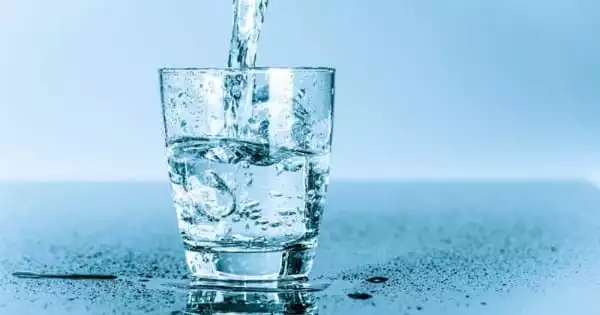New research suggests that most people around the world would benefit from drinking an extra glass of water to help prevent heart failure. According to research presented at a European Society of Cardiology conference, getting properly hydrated, which means reaching and maintaining appropriate levels over time, can reduce the risk of developing heart failure. Unfortunately, the same National Institutes of Health researchers discovered that the majority of people around the world aren’t meeting the minimum threshold that they discovered to have cardiological benefits.
“Our findings suggest that maintaining adequate hydration can prevent or at least delay the changes within the heart that lead to heart failure,” study author and National Heart, Lung, and Blood Institute researcher Natalia Dmitrieva said in a press release. “The findings suggest that we should pay attention to the amount of fluid we consume each day and take action if we discover that we are drinking too little.”
Our findings suggest that maintaining adequate hydration can prevent or at least delay the changes within the heart that lead to heart failure.
Natalia Dmitrieva
The researchers discovered that a daily fluid intake of two to three liters per day for men and 1.6 to 2.1 liters per day for women should be sufficient to avoid any additional heart failure risks associated with dehydration while also providing protective effects. Any less than that, and the sodium concentration in a person’s body becomes too high, increasing the risk of heart failure as the body automatically takes steps to conserve fluids.
According to a press release from Natalia Dmitrieva, Ph.D., a researcher at the National Heart, Lung, and Blood Institute, part of the National Institutes of Health (NIH) in Bethesda, Maryland, the findings, presented at the European Society of Cardiology Congress 2021, suggest that maintaining good hydration can slow down or even prevent changes within the heart that lead to heart failure.
“The findings suggest that we should pay attention to the amount of fluid we consume each day and take action if we find that we are drinking too little,” Dr. Dmitrieva said.

How much water is required? According to the National Academies of Sciences, Engineering, and Medicine, the recommended amount of fluid for men is 15.5 cups (3.7 liters) per day and 11.5 cups (2.7 liters) for women. This includes all beverages (not just water) and even food; food accounts for about 20% of your fluid intake.
Serum sodium level is a measurement of how much sodium your body contains; the more hydrated you are, the lower your serum sodium level. According to Maria Mounties, DO, cardiologist and heart failure specialist at Cleveland Clinic in Ohio, who was not involved in this study, this test is part of routine yearly bloodwork. “We use this in conjunction with other lab markers that look at kidney function to determine someone’s hydration status,” she explains.
Higher serum sodium levels in middle age were linked to heart failure and left ventricular hypertrophy 25 years later. After controlling for age, blood pressure, kidney function, blood cholesterol, blood glucose, body mass index, sex, and smoking status, serum sodium remained significantly associated with heart failure and left ventricular hypertrophy. Every 1 mmol/l increase in serum sodium concentration in midlife was associated with a 1.20 and 1.11 increase in the risk of developing left ventricular hypertrophy and heart failure 25 years later, respectively.
The main point is that these are long-term changes, so chugging a lot of water one day and not having any the next isn’t going to help. “It is natural to believe that hydration and serum sodium should vary from day to day depending on how much we drink,” Dimietrieva said in a press release. “However, serum sodium concentrations remain within a narrow range over long periods of time, which is likely due to habitual fluid consumption.”















